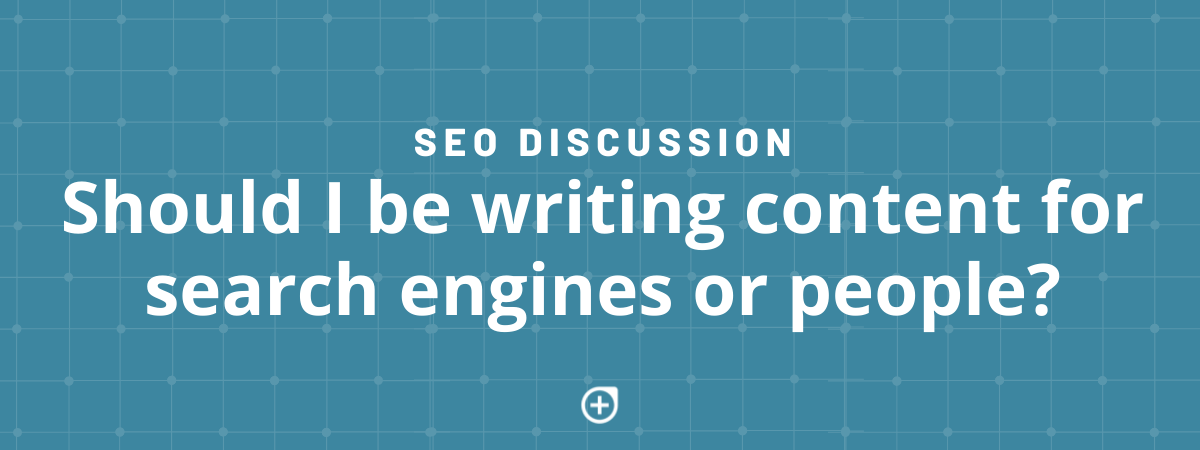SEO Discussion: Should I write content for search engines?

I recently had a discussion with a client about the best strategy to use for their software company’s features pages. Should they be concise with their messaging or should they be as long as possible for SEO value? Here’s what I wrote to them via email.
An SEO content writer’s perspective on writing for Google
I prefer to write for people first and algorithms second. Some SEO people might switch these priorities. Neither is wrong and it really just has to do with what you are trying to accomplish. Writing for Google algorithms can have success in raising your search engine rankings. So if your sole goal is to boost your search engine rankings, this might be the route you should go. You're going to check some best practices boxes. But Google's algorithms are getting better every day to simulate what humans want to read.
And here's the biggest thing to consider: if the customers you are trying to convert find your message confusing, will they convert?
Writing for people before algorithms means getting the information they want and need when someone gets to your site. In the SaaS niche, this is vital because often, it is hard to articulate what software does and how it can be useful. People want to feel assured the software is simple to use and isn't overly complicated. So for the features pages, I used a formula. I start with a concise statement of what the feature does, an overview of using the product, benefit-focused statements, testimonials, and a final call to action.
You'll start to notice this general format on other SaaS features pages. I like both of these:
- https://www.jotform.com/products/smart-pdf-forms/
- https://www.instructure.com/product/k-12/canvas-lms
You will definitely see a lot of debate about the length requirement all over the web. I like the discussion here:
https://moz.com/community/q/topic/65756/how-long-should-my-website-content-be-max-and-min-number-of-words
I think more content is usually better and tends to be true for many situations. You want to demonstrate that you are providing the best answer. But just like I explained above, there's nuance. The best and most informative answer is not always the longest one.
What are some guidelines for writing high-quality content for my website?
Ok, so you’re here to get some tips. So instead of me just saying write high-quality content for Google. I’ll define what that means.
Define a purpose
People and search engines both want to know the topic of your content. Don’t bury the lead.
Make it useful and informative
People are going to Google to ask questions. They want to learn from your website. So your content needs to be valuable and informative. You need to fine-tune your content for your audience. It can’t be too complicated, and it needs to reach your audience.
Research
Make sure you infuse some research into your content. It will help build credibility to your point.
Cite and link sources
Citing and linking sources will help build credibility. It will also provide additional SEO benefits because you should be linking to high-quality and high-authority websites.
Write well
Write well for your audience. They deserve it. Run spell-check. Don’t overcomplicate your message and write with clarity.
Edit
Edit for content and grammar. Go back and edit your work again every few months. Things change and evolve, and you need to update your website to reflect these changes.
Claim your work
Create a byline with your content. Own your work, and have pride in your work. Also, Google wants to know who made your content. It will also help you build an online reputation.
If you're looking for help with your business's content strategy or if you need a high-level copywriter, we can help.
Send us an email or schedule a call to learn more about our
content writing services.


